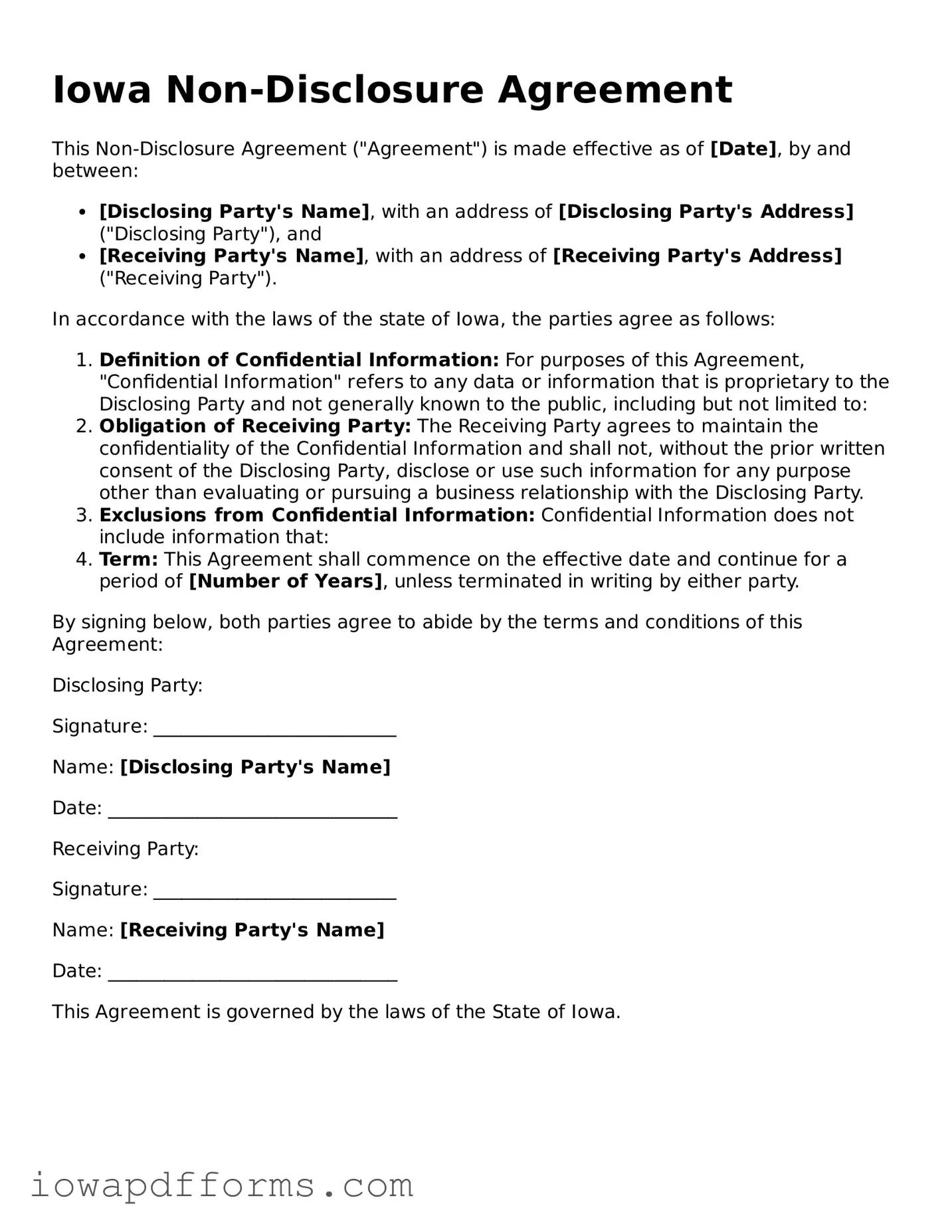Blank Non-disclosure Agreement Form for the State of Iowa
A Non-disclosure Agreement (NDA) in Iowa is a legal contract designed to protect confidential information shared between parties. This form ensures that sensitive data remains private and is not disclosed to unauthorized individuals. Understanding the importance of this agreement can help safeguard your business interests and personal information.
Fill Out This Document Now

Blank Non-disclosure Agreement Form for the State of Iowa
Fill Out This Document Now

Fill Out This Document Now
or
Free Non-disclosure Agreement
Fast and easy form completion
Edit, save, download — complete Non-disclosure Agreement online today.